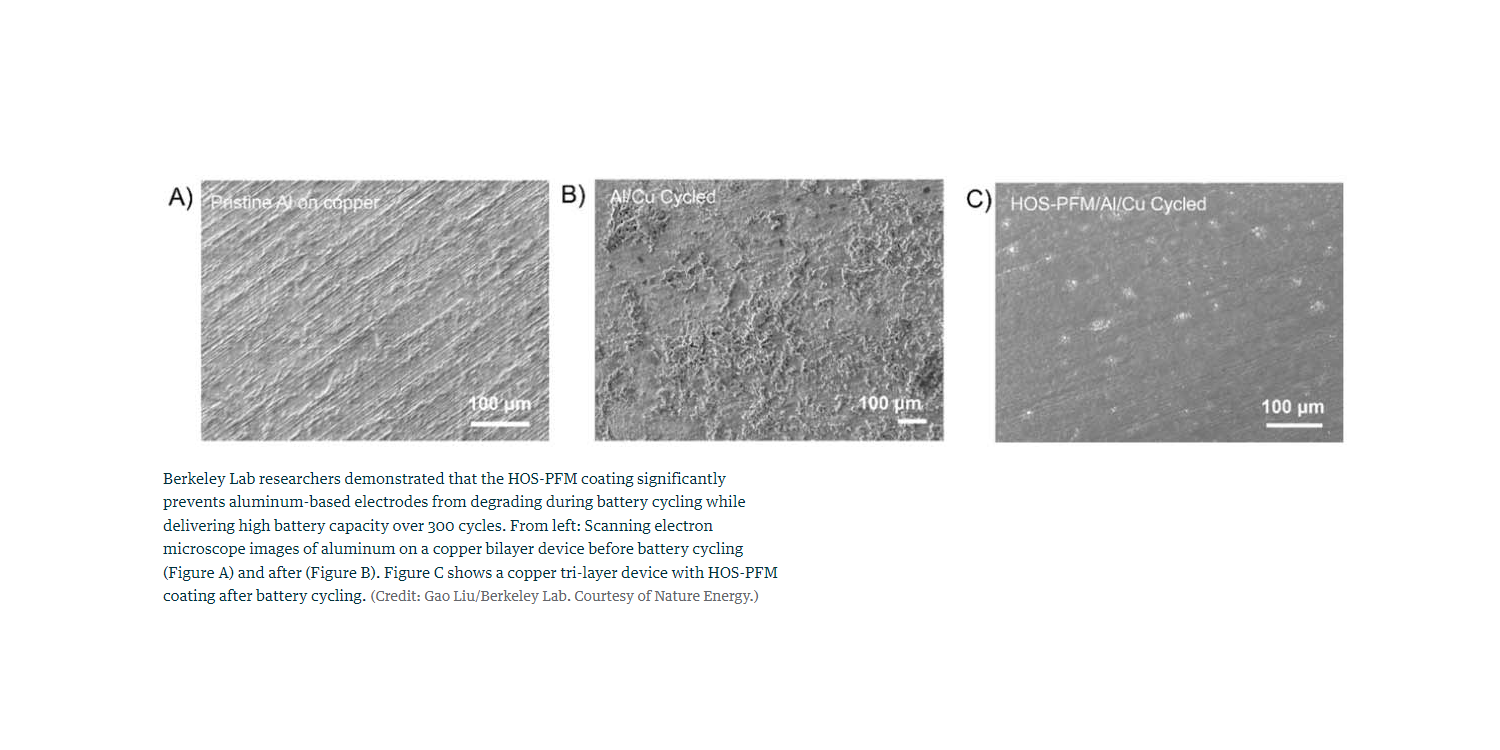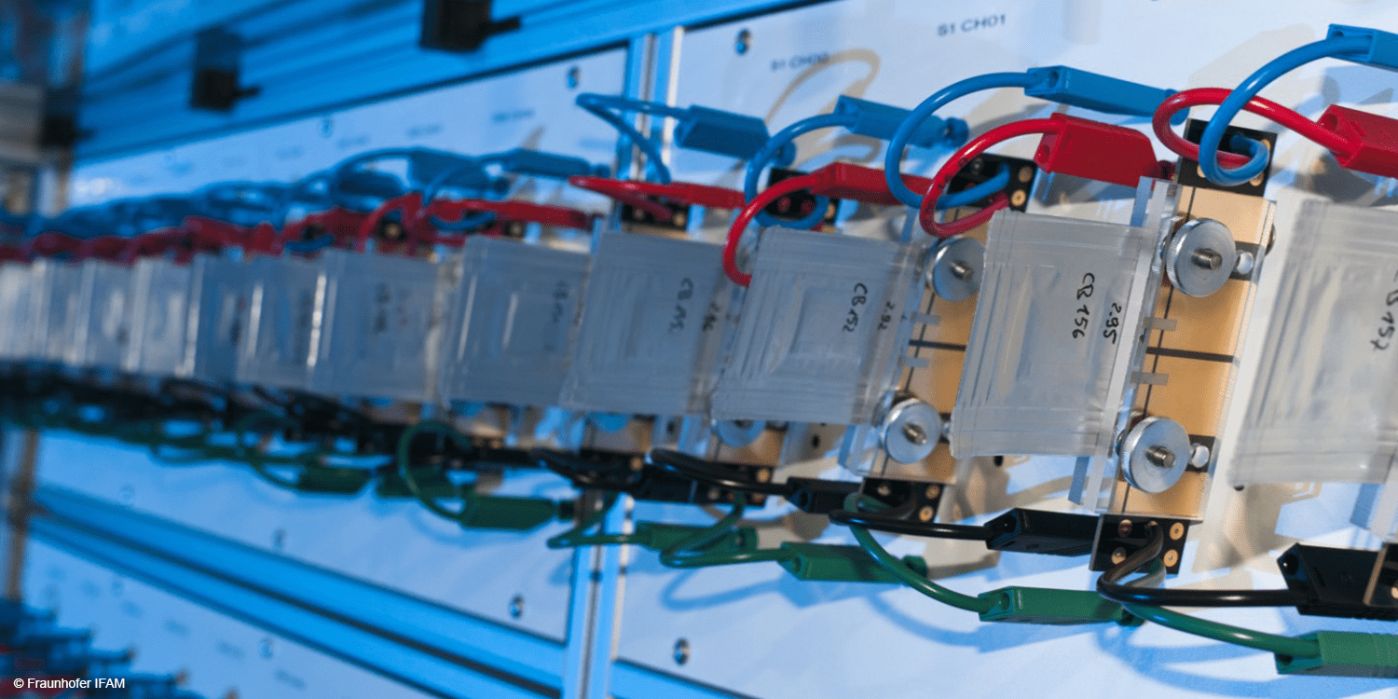Scientists at the US Department of Energy’s Lawrence Berkeley National Laboratory have developed a groundbreaking conductive polymer coating that could revolutionize the world of electric vehicles (EVs). The coating, known as HOS-PFM, is a game-changer, conducting both electrons and ions simultaneously. By doing so, it ensures battery stability and high charge/discharge rates while significantly extending battery life.
In addition, the HOS-PFM coating also shows promise as a battery binder that could extend the life of a lithium-ion battery from an average of ten to about 15 years. This advance represents a significant breakthrough in the development of more affordable and easy-to-manufacture EV batteries.
The HOS-PFM coating is made of a nontoxic polymer that, when heated to 450 degrees Celsius, creates vacant “sticky” sites that “grab” onto silicon or aluminium materials at the atomic level. The PFM polymer chains then self-assemble into “spaghetti-like strands” called “hierarchically ordered structures,” or HOS. These act as “an atomic expressway” on which lithium ions can “hitch a ride with electrons.”
The HOS-PFM coating could enable the use of electrodes containing up to 80 per cent silicon. Such a high silicon content could increase the energy density of lithium-ion batteries by at least 30 per cent. This increase in energy density could mean that EVs could travel further on a single charge, making them more practical for long-distance travel.
See also: StoreDot says mass-produced solid state EV batteries at least 10 years away
Furthermore, since silicon is cheaper than graphite, batteries with the HOS-PFM coating could be more affordable than current lithium-ion batteries. This development is a significant step forward in making EVs accessible to more people and reducing their environmental impact.
The next step for the researchers is to work with companies to scale HOS-PFM for mass production. With the potential for longer-lasting and more powerful batteries, this technology could pave the way for a future of electric transportation.







